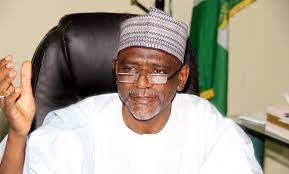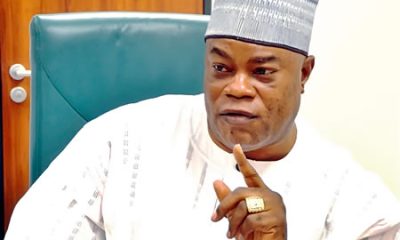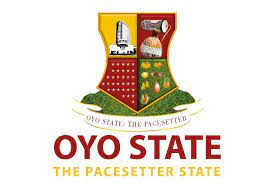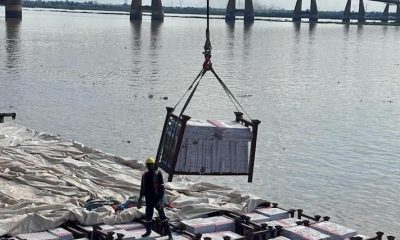Foreign News
Ukrainian Counterattack in Kharkiv, Donetsk gains further ground

Ukrainian fighters have recaptured more than 20 towns and villages in eastern Ukraine in the past 24 hours alone as their rapid counteroffensive continues, Kiev said.
“The liberation of localities under Russian occupation in the Kharkiv and Donetsk regions continues,” the General Staff of the Ukrainian Armed Forces said in a situation report.
It added that the towns of Velykyi Burluk and Dvorichna in the north of the Kharkiv region were the latest to have been abandoned by Russian troops.
Under pressure from the Ukrainian counteroffensives, Russia’s Defence Ministry announced the withdrawal of its troops from the Kharkiv region at the weekend, claiming it was part of a strategic “regrouping.
”Ukrainian President Volodymyr Zelensky had previously announced the recapture of the strategically important city of Izyum, with videos later emerging of Ukrainian soldiers raising the national flag there.
According to the general staff, Russian troops have also withdrawn from the town of Svatove in the Luhansk region, although separatist-aligned militias remain in action in the area.
“In the face of Ukrainian advances, Russia has likely ordered the withdrawal of its troops from the entirety of occupied Kharkiv Oblast west of the Oskil River,” British intelligence said in an update.
“Isolated pockets of resistance remain in this sector, but since Wednesday, Ukraine has recaptured territory at least twice the size of Greater London,” it continued.
Despite the apparent success of the Ukrainian counteroffensive, Kremlin spokesperson Dmitry Peskov appeared to double down on Moscow’s position on Monday.
Peskov stressed that Russia would continue its “special military operation” until its goals were met, according to the Interfax news agency.
The Kremlin spokesperson was evasive, however, when asked by journalists whether Russia’s military leadership still enjoyed the confidence of Russian President Vladimir Putin.
When asked how Putin reacted to the news that Russian troops were withdrawing from the Kharkiv region, he simply said that Russia’s president would be kept informed of all military developments.
Former Russian president Dmitry Medvedev said Kiev must accept Moscow’s current conditions for negotiations, warning that in the future Russia would only accept Ukraine’s unconditional surrender.
The current ‘ultimatums’ are child’s play compared to what the demands will be in the future: … the total surrender of the Kiev regime to Russia’s conditions,” Medvedev wrote on his Telegram channel.
Medvedev, who was once regarded as a potential agent for change in Russia but has since shown himself as one of the invasion’s most ardent supporters, threatened Ukraine with “Judgement Day,” should it attempt to retake the Russian-annexed Crimean peninsula.
The former president’s threats may have been a reaction to comments made by Zelensky in a CNN interview on Sunday, in which he said that he was not currently interested in negotiating with Russia as he saw no readiness for constructive talks among the Moscow leadership.
Zelensky said that the Russian preconditions for starting peace talks would see Ukraine being eaten up piece by piece and called Moscow’s tactics “Russian cannibalism.”
Instead, Zelensky said that Kiev intended to recapture all areas of Ukrainian territory currently occupied by Russian troops.
The Kremlin’s conditions for starting peace talks include ceding the eastern Ukrainian provinces of Donetsk and Luhansk, recognising Crimea as Russian territory, demilitarising Ukraine and pledging not to join NATO in the future.
Meanwhile, Rafael Grossi, the head of the International Atomic Energy Agency (IAEA) has called for the creation of a security zone around the embattled Zaporizhzhya nuclear plant in southern Ukraine.
Urging both sides in the conflict to end the shelling of the plant and the nearby area, Grossi conceded to journalists that his proposal did not go as far as full demilitarisation for the reason that “we must keep things simple.”
The radius of the proposed zone and the role of the IAEA team now stationed at the Zaporizhzhya plant had yet to be agreed, he added.
The IAEA confirmed that the shutdown of the last active reactor at the plant was now complete, but also said that the risk of nuclear disaster from shelling remained.
He stressed that the atomic material at the site would still require cooling despite the last reactor being shut down.
After Russian missile strikes knocked out power supplies in large areas of Ukraine at the weekend, Zelensky used his daily video address to call on the country’s allies to expedite their delivery of air defence systems to Ukraine, saying that “together we can overcome Russian terror.”
Russian strikes on a power plant near the city of Kharkiv left large parts of eastern Ukraine without electricity on Sunday night, Zelensky said, calling the shelling “revenge” for the Ukrainian military’s impressive advance in the Kharkiv region in the past few days. (NAN)
Foreign News
Trump, Putin to Meet in Coming Days-Kremlin Says

US President Donald Trump and Russian President Vladimir Putin have agreed to meet in the “Coming days”, the Kremlin has said.
It followed Trump saying there was a “good chance” he could meet his Russian and Ukrainian counterparts together in person “Very soon” to discuss ending the war in Ukraine.
Ukrainian President Volodymyr Zelensky indicated support for that idea, while Putin said he was not against meeting Zelensky but he was “Very far” from it happening.
Trump’s deadline for Russia to agree to a ceasefire in Ukraine or face more sweeping sanctions is due to expire on Friday.
A meeting between Trump and Putin would follow US envoy Steve Witkoff holding talks with the Russian president on Wednesday.
Witkoff has travelled to Moscow four times previously, visits followed by optimism from Trump but ultimately no major breakthrough in peace talks.
Speaking on Thursday, Putin said the United Arab Emirates could host his meeting with Trump, potentially as early as next week.
He said he was “very far” from a meeting with Zelensky because “Conditions” had not been met and there was “still a long haul ahead for creation of such conditions”.
Previously, Putin said he would only meet Zelensky during a final phase of negotiations. Kyiv and its Western partners reject Moscow’s demands for ending the war.
Zelensky indicated his support for a summit, acknowledging that various formats of meetings had been discussed – “Two bilateral and one trilateral” – and added that Europe “must be a participant” in any talks.
He wrote on X: “Ukraine is not afraid of meetings and expects the same brave approach from the Russian side.”
When asked at a White House briefing on Wednesday night whether Zelensky and Putin had agreed to a three-way summit, Trump had said there was a “very good prospect”.
Last month, Trump admitted that after all four of Witkoff’s previous visits, Putin had disappointed him after talks had initially led to optimism.
The US President is now striking a more cautious tone, telling reporters on Wednesday: “I don’t call it a breakthrough…we have been working at this for a long time. There are thousands of young people dying… I’m here to get the thing over with.”
On Wednesday, the Kremlin released a vague statement about Witkoff’s visit, calling the discussions “constructive” and noting that both sides had exchanged “signals”.
Zelensky meanwhile said he had spoken to Trump about Witkoff’s visit, with European leaders also on the call.
The Ukrainian president has been warning that Russia would only make serious moves towards peace if it began to run out of money.
Expectations are muted for a settlement by Friday – when Trump’s deadline expires – and Russia has continued its large-scale air attacks on Ukraine despite the US threat of sanctions.
As pressure builds, Trump on Wednesday signed an executive order imposing a 25% tariff on Indian imports over its continued purchase of Russian oil
Before taking office in January, Trump said he would be able to end the war between Russia and Ukraine in a day. The conflict has raged on and his rhetoric towards Moscow has since hardened.
Three rounds of talks between Ukraine and Russia in Istanbul have failed to bring the war closer to an end, three-and-a-half years after Moscow launched its full-invasion.
Moscow’s military and political preconditions for peace remain unacceptable to Kyiv and to its Western partners.
Russian demands include Ukraine becoming a neutral state, dramatically reducing its military and abandoning its Nato aspirations.
It also wants Ukrainian military withdrawal from its four partly occupied regions in the south-east, and the demobilisation of its soldiers.
Russia also demands international recognition of Ukraine’s Donetsk, Luhansk, Kherson and Zaporizhzhia regions, as well as the annexed Crimea.
Other conditions include a ban on Ukraine’s membership in any military alliances, a limit on the size of the Ukrainian army, Russian as an official language, and the lifting of international sanctions on Russia.
The Kremlin has also repeatedly turned down Kyiv’s requests for a meeting between Zelensky and Putin.
Meanwhile, the US approved $200m (£150m) in additional military aid to Ukraine on Tuesday, including support for drone production.
Foreign News
US Seeks $15,000 for Visa Applicants Deposit from Two African Countries

The US has required citizens from Malawi and Zambia to pay a $15,000 (£11,300) deposit for a tourist or business visa, according to the US state department.
The 12-month pilot programme aims to curb visa overstays or where screening and vetting information is considered deficient according to a notice published by the state department.
It was said that citizens of other countries than Malawi and Zambia may soon also need to pay a similar deposit, which will be returned at the end of their visit to the US.
The US administration has taken several steps to further President Trump’s agenda of stemming illegal immigration.
Trump signed an executive order on the first day of his second term to this effect, and the state department noticed published on Tuesday, says: “Aliens applying for visas as temporary visitors for business or pleasure (B-1/B-2) and who are nationals of countries identified by the Department as having high visa overstay rates, where screening and vetting information is deemed deficient, or offering Citizenship by Investment, if the alien obtained citizenship with no residency requirement, may be subject to the pilot program.
“Consular officers may require covered non-immigrant visa applicants to post a bond of up to $15,000 as a condition of visa issuance, as determined by the consular officers.” Figures published in 2023 by the US department of Homeland Security show that about 14% of visitors from Malawi overstay their visas, compared to 11% of Zambian visitors.
Other countries with high overstay rates include Haiti (31%), Myanmar (27%) and Yemen (20%).
Zambia Foreign Minister Mulambo Haimbe had said the government was “engaging our counterparts to get a full understanding of the implications and what can be done, if anything, to address the underlying issues”.
Since coming to office in January, Trump has signed orders to roll back humanitarian programmes for migrants from certain countries who are already in the US. He has also banned foreign nationals from 12 countries from travelling to the US, and imposed partial restrictions on another seven.
His administration has revoked visas for hundreds of international students and detained several others on college campuses across the US, often without any warning or recourse for appeals.
The state department has said it is targeting those who were involved in activities that “run counter” to US national interests.
Many of those targeted have participated in some form of pro-Palestinian activity.
But there have been other cases where cancellations appear to be connected to those with some sort of criminal record, or legal infractions like driving over the speed limit, immigration lawyers have said.
Foreign News
Ghana Raises Cocoa Prices to $5,040 Per tonne

Ghana on Monday increased the producer price of cocoa by more than 60 percent ahead of the 2025-26 season, a move expected to put pressure on top cocoa-producing rivals like the Ivory Coast.
The move could also raise global cocoa costs even further, at a time when supply chains are already tightening due to climate shocks and ageing farms.
Finance Minister Cassiel Ato Forson said the rate paid to farmers will rise from $3,100 to $5,040 per tonne, a 62.
58-percent increase.“The cocoa farmer remains a critical pillar of our economy, and this government is committed to ensuring they benefit from the gains we are making,” the minister said at a news conference in the capital, Accra.
Ghana, the world’s second-largest cocoa producer, typically sets its prices ahead of the Ivory Coast, which leads global production.
The Ivorian government is currently paying farmers 2,200 CFA francs per kilogramme, about $3,900 per tonne.
The substantial increase in Ghana is in line with a campaign promise by President John Mahama, elected in December, to raise cocoa farmers’ share of export earnings to at least 70 percent of the Free-On-Board (FOB) value — the price of cocoa at the point it is loaded onto a ship for export.
The FOB price has shot up in recent years, with the current $7,200 price reflecting a blend of earlier contracts signed at $2,600 per tonne during the 2023-24 season and forward sales forecasts for 2025-26, Forson said.
Farmers were previously only receiving 63.9 percent of the FOB price, or $3,100 of the $4,850 FOB value, in the 2024-25 season.
Forson said the revised price also accounts for improved macroeconomic conditions, including a strengthening cedi and easing inflation.
Ghana’s price controls are meant to stabilise earnings for farmers, especially during price dips, but critics say they have lagged behind market highs, especially in recent years, as global prices have spiked.
In response, some farmers have joined the country’s gold rush, selling off land to informal miners — many of whom have left environmental destruction in their wake, further squeezing production.
Getting fair prices for farmers — at the bottom of cocoa’s global value chain — has long been a goal of both activists and West African governments, with fingers pointed at both private firms and buyers as well as official corruption.
Forson also announced the reintroduction of the government’s free cocoa fertiliser programme, which includes the distribution of fertilisers, insecticides, fungicides, spraying machines, and flower inducers to increase yields and income.
























Pingback: Russian Strikes on Ukraine Ports, Blow to Food Security – UN Official Daily Asset Online